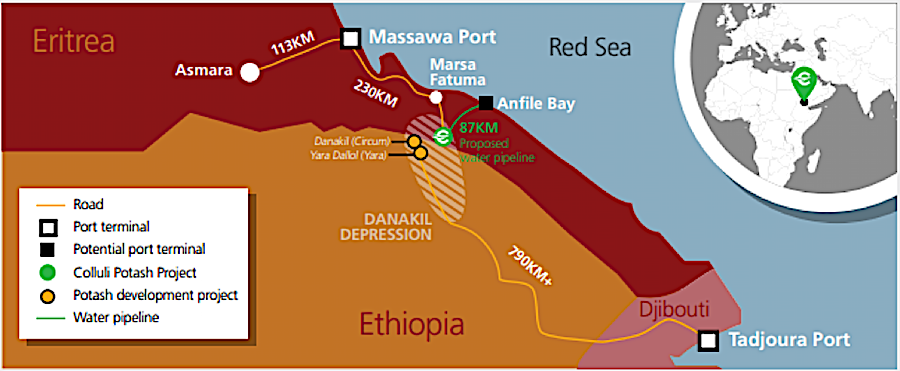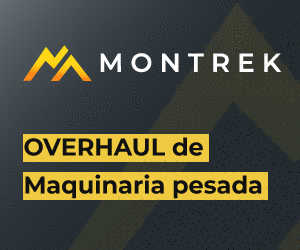Australia’s Danakali (ASX, LON:DNK) has secured a further $50 million investment from its ally Africa Finance Corporation (AFC), which will allow it to speed up development of its world-class Colluli sulphate of project (SOP) in Eritrea.
The company has entered into a subscription agreement with AFC for a placement of fully paid ordinary shares to raise the funds needed to begin production of SOP, a premium grade fertilizer, in 2022.
Upon the placement’s completion, AFC will hold 32% of Danakali, granting the company’s rights to nominate up to two directors to Danakali’s board.
Colluli has the potential to produce 944,000 tonnes of SOP, a premium grade fertilizer, over its 200-year plus mine-life.
The Perth-based company received last year a $200 million senior debt facility from AFC. Together with African Export Important Bank (Afreximbank), the financial institution has provided the majority of the overall funding for Colluli, which is expected to become one of the world’s most significant and lowest cost sources of SOP.
In October, the company said it would spend $1.4 million until the end of the year to build the mine, considered “a game changer” for Eritrea’s economy.
“The government will benefit from the longer-term development of the project, and the expected significant boost to royalties, taxation and exports, and from jobs and skills and economic development of the region,” chief executive Niels Wage told MINING.COM in July.
The development of the Colluli potash projects coincides with the move towards diplomatic relations between the once feuding countries of Eritrea and Ethiopia, which officially declared peace last year.
Welcome boost
A United Nations report published in January suggested that Colluli could
significantly boost the economy of Eritrea, a country that, until last year,
was on the UN’s sanctions list.
The document estimated that Colluli
would contribute 3% of the country’s GDP by 2021 and 50% of the nation’s
exports by 2030, while providing 10,000 direct and indirect local jobs.
It also identified how the mine could help Eritrea advance its sustainable development agenda, which are 13 priority Sustainable Development Goals (SDGs). These include: no poverty, zero hunger, quality education, gender equality, clean water and sanitation, sustainable economic growth and decent work, industry, innovation and infrastructure, reduced inequalities, climate action, peace, justice and strong institutions and partnerships for the SDGs.

In the initial phase of operation,
Wage said, Colluli would produce more than 472,000 tonnes a year of SOP. Annual
output could rise to almost 944,000 tonnes if Danakali decides to go ahead with
a second phase of development, as the project has a possible 200-year plus
mine-life.
The asset has the potential to
produce other fertilizer products, such as Sulphate of Potash Magnesium
(SOP-M), muriate of potash (MOP) and gypsum, along with rock salt. There is
also potential for kieserite and mag chloride to be commercialized with minimal
further processing required.






